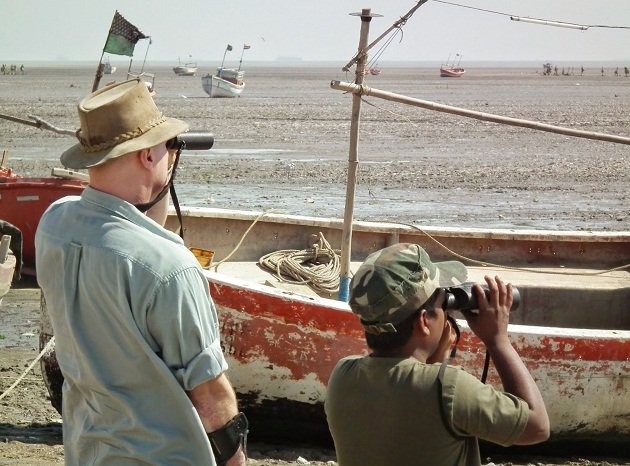
My last blog has created quite a discussion among the readers, mostly from US, but also southern and eastern Africa and Europe (apologies if I forgot some region). They were commenting where they felt most at home – on their favourite FB pages (predominantly American Birding Association). I found those comments insightful and inspiring, valuable experiences and opinions worthy of sharing to a wider audience than the FB groups where they were initially posted. Here we go:
Guest-authors: Deborah Jean Cohen, Eric DeFonso, James Wolstencroft, Joshua Stuart Rose, Marcel van Driel, Mike Black, Natural Greece, Paul Oliver, Rockjumper – Worldwide Birding Adventures, Sandra Paci, Susan Soloyanis, WorldBirders
Eric DeFonso: “I was thinking about one particular quote from the blog post today while guiding, pertaining to recounting special bird sightings. ‘One thing every guide should avoid – and it may be hard to resist, especially when it is some mega, is giving useless information like: ‘Right there, two weeks ago, I’ve seen an Elvis Bird.’ If you cannot share the bird with your guest, try not to share the experience because it makes everything they have seen a little league birding, compared to your mega tick.’
“I agree with this for the most part, but I also think that there is a way to share interesting information about a great bird’s occurrence without making the guest feel like they’re not as cool as you for having seen it. I think perhaps if you as the guide can depersonalize the sighting and use more of a passive voice, you can still convey the information of the sighting but in a non-one-upper kind of way. ‘Pompadour Cotinga has sometimes been seen from the tower platform.’ Sure, I could say that *I’ve* seen the Pompadour Cotinga and puff myself up, but if my real goal is just to get the guest or client to keep their minds open to the possibility of the bird, then it’s enough to just mention that some nameless birders have seen it. It emphasizes the sighting and de-emphasizes who sighted it. I think that kind of reference just seems less like bragging and more like sharing.”
Mike Black: “Honesty is the most important quality for a good guide.”
Natural Greece: “Empathy is important too. Language skills too.”
Susan Soloyanis: “Local knowledge – knowing where to find birds. Making sure that all trip participants see all the birds. Identifying all birds, not just the target birds. Pointing out field marks and discussing similar birds in comparison. A teacher.”
Eric DeFonso: “I think a ‘good guide’, in the most generic sense, is one who provides for a gratifying nature experience for his or her clients. That of course can take many shapes, but I see it in terms of knowing the overall landscape and habitat you happen to be in. Whether it’s an intimate knowledge of the birdlife of the area including where to find them and actually being able to find them, or perhaps a broader perspective of knowing the ecology of the place and knowing how the birds fit into it, I really appreciate a guide who can be a true nature interpreter. That’s certainly the approach I aspire to.
“And yes, like Sandra says, a good guide is also a thoughtful human being who looks after the needs of the clients and balances the needs each client has with the overall needs of the group, and with what is reasonable and realistic.”
James Wolstencroft: “Someone who is sufficiently aware that they can mould their own (large) ego into what is required by the particular group of guests, presumably those who collectively are paying for the ‘bird guide service’. As compared to a ‘good teacher’ who determinedly should lead the students into mental territories that are likely new for them. In both cases one should hope to make the recipients think more about the socio-ecological realities of the location they are visiting. So, what then makes a good customer?”
WorldBirders: “Listening to his/her customers! Some guides forget that the trip is not for their enjoyment!”
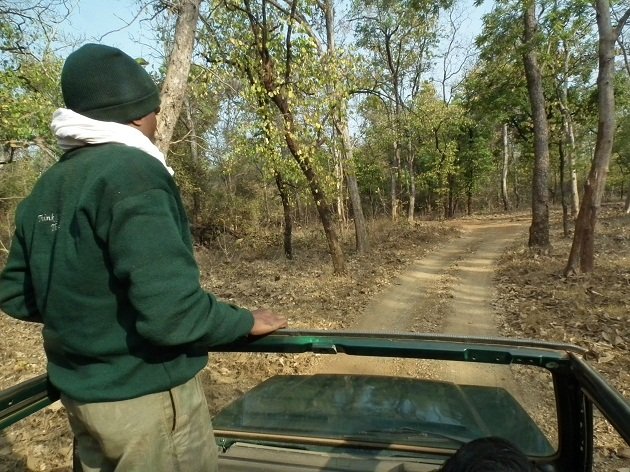
Sandra Paci: “A guide should never prioritize their own photography over a client seeing and/or photographing a bird. I have actually had ‘guides’ say to me that it is OK if I miss a bird because I can look at their photo instead. News flash: No, it’s not OK! And if you say this to me I will never use you or your company again.”
Joshua Stuart Rose: “I think it’s a mistake to assume that there’s only one kind of ‘good bird guide’ or one good way to lead a tour. It’s important that a guide be matched to his customers. I tend to be disappointed when a leader moves along too quickly, leaving birds only minutes after finding them, or giving up quickly when a bird doesn’t show up immediately at the expected place. But I know some people want to get the longest possible trip list, and don’t want to risk missing a later bird species because they stayed too long at an earlier stop. I’m also a big fan of dragonflies, butterflies, herps, and other critters, but I know some birders just want to focus on birds and nothing else. So a guide has to communicate clearly with customers, and either be flexible and shape their tour to the customers’ interests, or else be selective and send customers to other guides if his or her own tour is not what those customers want.”
Paul Oliver: “A bird guide should…be pointing out why a swift with a white rump is one species and not another and why it is there that day, in that location at that time of the day/month. That way passing on his/her knowledge about 3/4 species and not just the one on show. I witness too many bird guides just saying – ‘Look, White-rumped Swift!’ TICK. And not explaining why its not another species. During the tour the punters should be eventually able to spilt all swifts with white rumps and gain distributional, habitat and seasonal understanding.”
Deborah Jean Cohen: “I would also like a guide to know how to describe where the bird is (ie, pick out a landmark, then use the clock points). I’ve had a guide say, see those bushes? There were at least 10 acres of bushes. And also to be patient with older people whose vision is fading.
“A guide needs to know how to describe where the bird is. I’ve had lots of good guides, and only one very bad one. This one was so bad, that we abandoned the idea of seriously birding and just enjoyed our vacation. It wasn’t that he didn’t know the birds, it was that he had a moody personality. We got to one of the lodges, and he decided he didn’t want to id any of the hummingbirds. We did the best we could from books. We thought it was just us 3, but then discovered that he wouldn’t id for anyone else either. It was so weird that it was funny, and Sharon and I want to write a bird murder mystery with him as a character.”
Marcel van Driel: “A good bird guide for me is someone who knows more birds than I do. I once asked our guide at the South Luangwa national park [Zambia] if he was good with birds. ‘Try me’ was his reply. Instant trust established.”
Deborah Jean Cohen: “They ought to be nice and not sadistic!!! Also enthusiastic. All my best guides were total bird nuts. It’s so much fun to share the sense of awe. In Hawai’i, I was standing right beside the guide when we got an Akiapolaau pair…we just stared at each other in pure delight. We almost fell down. It was SO MUCH FUN.”
Rockjumper – Worldwide Birding Adventures: “Hello Dragan. Very simply – a combination of passion, patience, knowledge and experience! Of course, you also need to be a people’s person, and it would help if you have a love for flying and airports, if indeed you wish to lead tours around the world!”






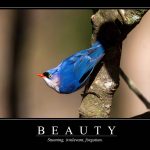
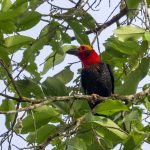
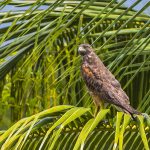
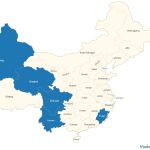
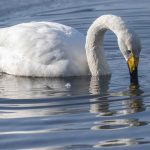
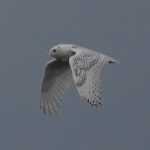
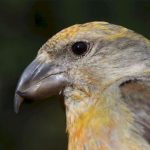
I second Paul Oliver’s post about saying why it’s a particular species and not another!
One of the most irritating I’ve heard – wasn’t in his group thank goodness, was one who constantly said “Hurry! Hurry! Hurry!” to his group. I guess he wanted everyone to see a bird he had found, but as an onlooker I would have hated to have him as my guide!